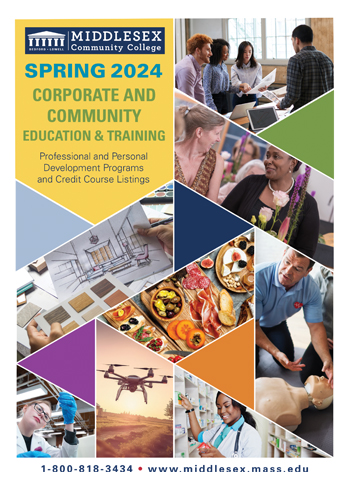Professional Development
at MCC
Research on Student Retention
Project participants studied research on best practices from a variety of sources as they developed the strategies to improve student success at Middlesex Community College.
Chaves, C. (2006). Involvement, Development, and Retention. Community College Review, 34(2), 139-152. Retrieved from Academic Search Premier database.
ABSTRACT The aim of this article is to orient those interested in adult community college student research to a wide array of discourses and theoretical tools that can help us understand the underlying complexity of the problems faced by this often-marginalized group. Reviewed are categories of theory about student involvement and engagement, student development, and adult learning that should inform how we educate adult community college students. This article concludes with a discussion of how all these theories, taken together, can improve adult education in community colleges.
Green, D. (2008). SIRIUS Academics: A Multidimensional Initiative to Improve Student Retention and Success. Community College Journal of Research and Practice, 32(11), 886-887. Retrieved from ERIC database.
ABSTRACT Sirius Academics is a partnership of educators, technical experts, and corporate
sponsors assembled to produce a highly interactive textbook replacement model for
use in all course delivery modes. The model promotes student retention and success
by integrating learning and motivation research, embedded assessments, and enriched
multimedia content for student engagement.
Fike, D., & Fike, R. (2008). Predictors of First-Year Student Retention in the Community
College. Community College Review, 36(2), 68-88. Retrieved from ERIC database.
ABSTRACT This study analyzed predictors of fall-to-spring and fall-to-fall retention for 9,200 first-time-in-college students who enrolled in a community college over a four-year period. Findings highlight the impact of developmental education programs and internet-based courses on student persistence. Additional predictors include financial aid, parents' education, the number of semester hours enrolled in and dropped during the first fall semester, and participation in the Student Support Services program.
Drew, C. (1990). We can longer love 'em and leave em: A paper on freshman retention. Community College Review, 17(4), 54. Retrieved from Academic Search Premier database
ABSTRACT Reviews the literature on the reasons that students drop out of college. Offers a plan for freshman retention that asks students about their goals at registration, provides them with a six-hour orientation emphasizing academic excellence, teams them with a faculty mentor, and includes a mandatory for-credit seminar on attending college.
Higbee, J., Arendale, D., & Lundell, D. (2005). Using theory and research to improve
access and retention in developmental education. New Directions for Community Colleges,
2005(129), 5-15. Retrieved from Academic Search Premier database
ABSTRACT This chapter summarizes theoretical perspectives and research findings on
developmental education, and emphasizes the importance of considering students' voices
and experiences in determining how best to facilitate growth and development in college.Zamani,
E. (2000). Sources and Information Regarding Effective Retention Strategies for Students
of Color. New Directions for Community Colleges, 2000(112), 95. Retrieved from Academic
Search Premier database.
Zamani, E. (2000). Sources and Information Regarding Effective Retention Strategies
for Students of Color. New Directions for Community Colleges, 2000(112), 95. Retrieved
from Academic Search Premier database.
ABSTRACT A brief narrative description of the journal article, document, or resource.
Reporting literature from the ERIC system, highlights issues and concerns regarding
minority student retention and learning success within community colleges. Discusses
factors contributing to declining retention rates and effective programming strategies
designed to address continued participation of students of color.
